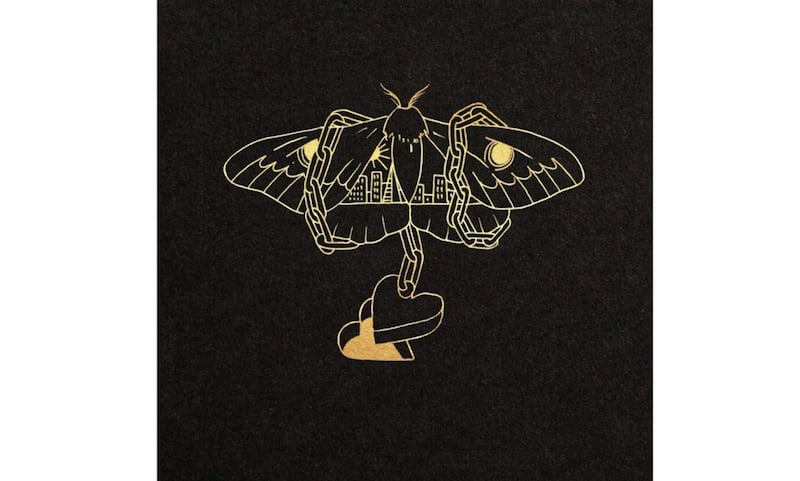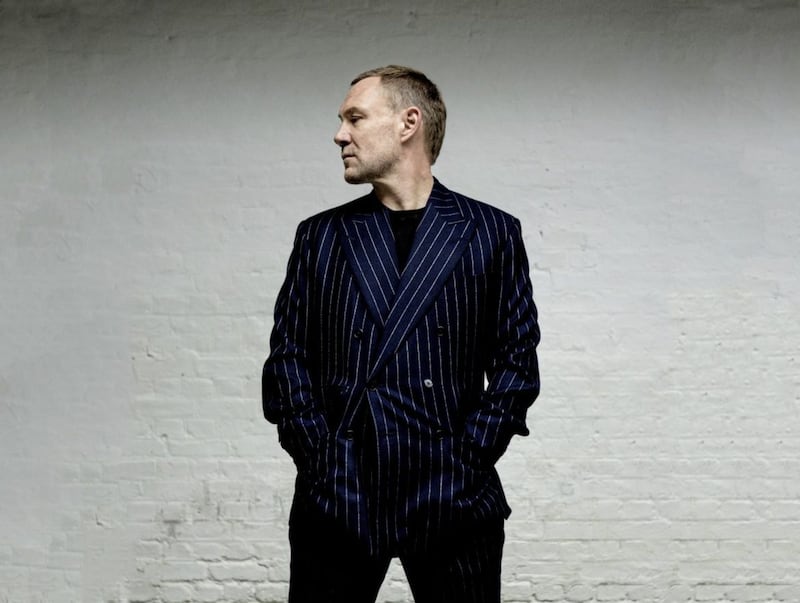DAVID Gray is laughing as he recalls being ambushed while trying to buy his lunch about 20 years ago.
"I got more than I bargained for when I was suddenly swamped at the deli counter in Sainsbury's," he recalls. "I didn't even get to pick up my prosciutto. I had to leave because I was being crushed by the sheer number of people.
"That was when it was all kicking off, 20 years ago or whatever. It was going nuts."
Gray is, of course, referring to the success of his not-so-insignificant album White Ladder, arguably one of the biggest breakout records of the era.
It was actually his fourth album and he initially self-released it on his own independent label in 1998 to zero fanfare. (He had also previously written songs for Irish singer Mary Black.)

But, following its re-release by a major label in May 2000, White Ladder – brimming with radio-friendly hits Babylon, This Year's Love and Sail Away – achieved the slow-burn level of success that most artists could only dream of. It finally nabbed the number one spot on the Official Albums Chart over a year later, in August 2001.
His up-tempo, euphoric ballads and powerful folktronica pop songs were the soundtrack to the early noughties and catapulted Gray, a seemingly unassuming singer-songwriter who had faced years of disappointment, to global stardom.
No wonder he drew so much attention while trying to pick up a couple of slices of Italian ham in his local supermarket.
Gray is still grateful for the record's eminence, and how it served as a springboard for the rest of his career, which has seen him continue in a similar path with another two number one and two top 10 albums.
But he is not so enamoured by the inevitable side-effect of such a career high – fame.
"It's such a strange world and not one I aspire to," he admits.
"I did shrink into myself when it first happened to me, the fame aspect. But I have grown used to it.
"I'm at the level where it's a controllable part of my life, most of the time. For a while it was like Being John Malkovich – I was inside my own head looking out of the portals of my own eyes at this bizarre world where everyone was your friend.
"You're a walking pound sign mincing around, everyone is bringing commercial possibilities, every promoter, every agent, every journalist; you're something that means something good for them.
"It was a weird thing, a shocking thing. You have to weather that storm... but it's the music that kept me going."

He continues: "White Ladder succeeded because of word of mouth; it's something that people passed around. It wasn't given a blessing by the gatekeepers... they didn't go, 'Yes, and White Ladder shall proceed and it shall sell millions of copies' – nobody even knew it was out. It was people. People made it happen."
Gray speaks eloquently and poetically, his songwriting gift seeping through as we chat over the phone about his new album Gold In A Brass Age, which he hopes will also be passed on organically by inspired listeners.
"I believe in the power of word of mouth," he says. "That's how I discovered all the music I cared about when I was growing up."
It's a Catch-22 situation in the music world, though: with enormous success inevitably comes a higher profile. He's already famous, but gladly lives his life away from the spotlight.

So I have to ask: If Gold In A Brass Age were to mimic White Ladder's stellar accomplishments, how would he really feel?
"It's not that I wouldn't want things to get more successful because it would mean I'd be more famous again – that's not true," he insists. "I would take that hit because I want the music to get across to people.
"It's something that everyone has to come to on their own level of understanding and comfort with."
He laughs: "Jesus, it was the time of my life getting to number one, getting into the charts. It was unbelievable! Who would ever have expected that? It was absolutely wonderful and hilarious."
But, he adds: "It's not that I look down on that stuff – it's just that I know that you can't conjure it from will alone."
Gray describes the new album, his 11th overall and his first collection of new material in four years, as "quite subtle in how it unveils itself".
He says it is "vocally softer and less 'grabbing at you'" compared to the belter-style hits of his earlier career.
The record is understated, intimate and rich, with poetic lyrics and a more explorative electronica sound. What inspired him to create such a profoundly moving and artistic piece of work, I wonder?
"Life, death, sickness, illness, unpredictable things, the illusion of control that we have about our lives and the people around us and then stuff can just happen out the blue," he says. "There are a lot of things that happen that you just would never have imagined, and that feeds into your music.
"It regurgitates, it adds soul as we react to these very visceral experiences. It comes out in the music."
He says that getting older had a large impact on his musical pilgrimage, as it were.
"My age group, we're all getting into our late 40s, early 50s, and our parents are all getting older, and more bad things happen," Gray says, a grin audibly forming on his lips as he adds: "It's all part of the rollercoaster ride."
His current sound is certainly something he is fond of and believes in wholeheartedly. But does he ever worry that his long-time fans – those who fell in love with him for the jubilance of rousing anthems like The One I Love and Please Forgive Me – will not be so taken by his new stuff?
He answers: "I don't worry that I'm going to lose fans. I'm just trying to connect to the people who are interested to hear what I'm doing now. I can't be imprisoned by the success of something that happened in the past. I'm moving into the future."
Gray adds: "This album is more experimental, but there are a lot of things in common between the two records. There's an accessibility in some of the lyrics, and the tunes – White Ladder just had these massive songs on it that were easy to grab hold of.
"They were heart on sleeve, and that is still my process. I'm trying to make the most heartfelt music I can make that engages my mind, my ear, excites me in every way and that's what I've done.
"So all I can do is be proud of that and hope that people can connect with it too."
:: Gold In A Brass Age is out today. David Gray plays the Waterfront, Belfast, on April 2; the Royal Theatre, Castlebar, Co Mayo, on April 4; the Bord Gais Energy Theatre, Dublin on April 5 and 6; and Live At The Marquee, Cork, on July 7. See ticketmaster.ie








